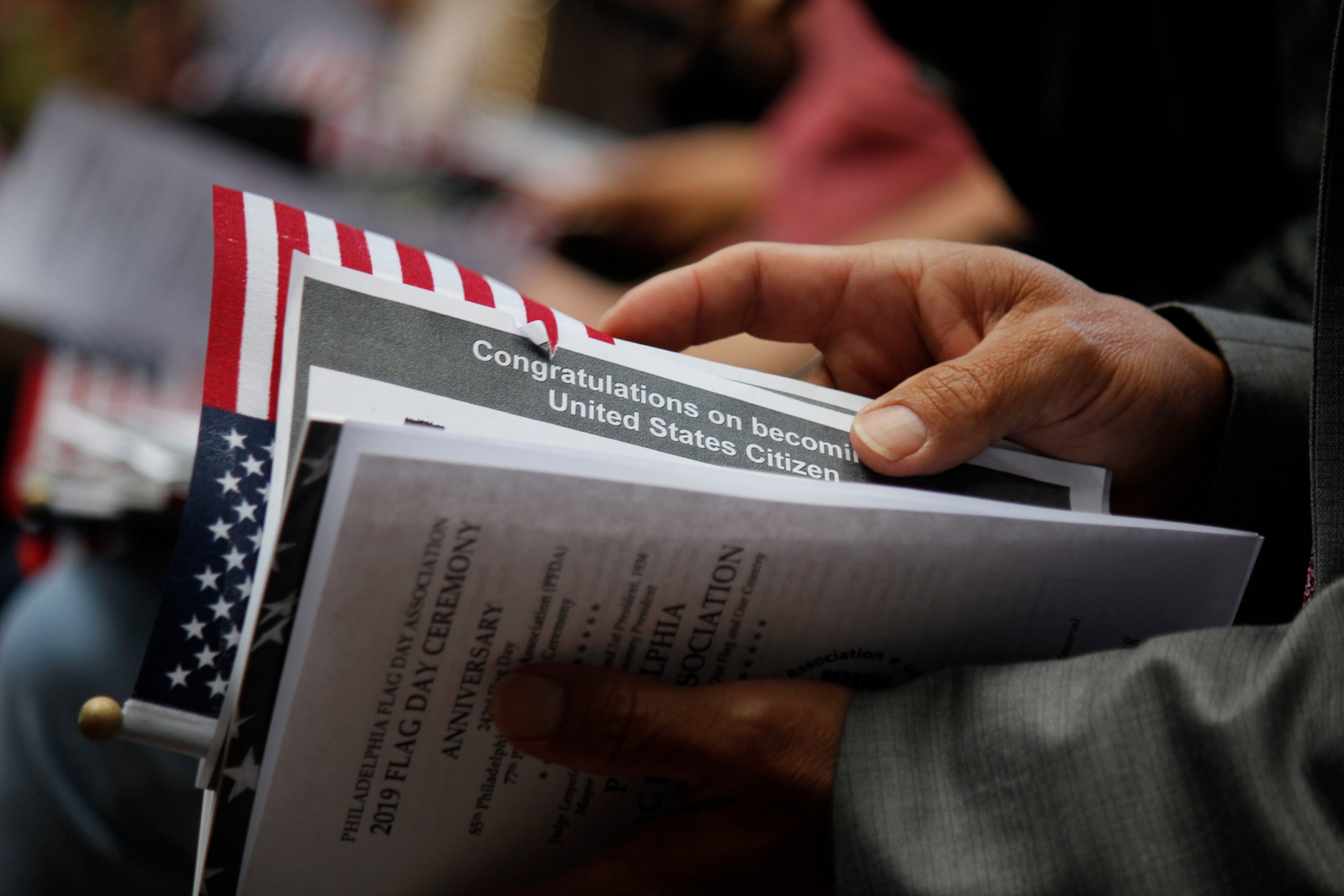DOJ’s New Denaturalization Memo: Are Naturalized Citizens at Risk?
What Naturalized Citizens Must Know

For millions of naturalized U.S. citizens, the journey to citizenship is the culmination of years of dedication, adherence to laws, and a deep commitment to the American dream. It’s a moment of immense pride and a promise of security. However, a recent memorandum from the Department of Justice (DOJ) has cast a shadow of uncertainty, significantly intensifying the government’s focus on denaturalization – the process of revoking U.S. citizenship.
This new directive, issued by Assistant Attorney General Brett Shumate on June 11, 2025, signals a clear and aggressive shift in policy. While denaturalization has always been a legal tool available to the U.S. Government in cases of fraud or misrepresentation during the naturalization process, this memo broadens the scope and prioritizes its pursuit to an unprecedented degree.
What Does the New DOJ Memo Mean?
Historically, denaturalization cases were rare and typically reserved for extreme circumstances, such as individuals who committed war crimes, terrorism, or egregious identity fraud. This new DOJ memo, however, explicitly directs DOJ attorneys to “prioritize and maximally pursue denaturalization proceedings in all cases permitted by law and supported by the evidence.”
The memo outlines several categories of cases that will be prioritized, including:
-
Threats to National Security: Individuals connected to terrorism, espionage, or unlawful export of sensitive U.S. goods, technologies, and information.
-
Human Rights Violators: Individuals involved in war crimes or torture.
-
Transnational Criminal Organizations: Affiliates of gangs, drug cartels, or other criminal enterprises.
-
Serious Undisclosed Criminal Offenses: Individuals who concealed felony convictions during their naturalization process.
-
Human Trafficking, Sex Offenses, or Violent Crimes: Individuals who committed of such offenses.
-
Financial Fraud Involving U.S. Government Programs: Individuals who engaged in financial fraud against the United States (including Paycheck Protection Program (“PPP”) loan fraud and Medicaid/Medicare fraud).
-
Large-Scale Financial Fraud. Individuals fraud who engaged in fraud against private individuals, funds, or corporations.
-
Citizenship Obtained Through Bribery, Misrepresentation, or Corruption. Individuals who acquired naturalization through government corruption, fraud, or material misrepresentations.
-
Cases Referred by U.S. Attorney’s Offices. Cases referred by a United States Attorney’s Office or in connection with pending criminal charges, if the charges do not fit within one of the other outlined priorities.
-
“Any other case”. Other cases the Civil Division deems “sufficiently important to pursue.”
The broad language, particularly the final “catch-all” category, raises significant concerns. It suggests a potentially wide discretion for the DOJ to pursue denaturalization for a broader range of alleged infractions, even those that might previously have been considered minor or unintentional.
The Stakes are Higher Than Ever
Denaturalization is a civil action, not a criminal one, which means the standard of proof for the U.S. Government is lower. The U.S. Government has to meet the clear and convincing evidence standard rather than beyond a reasonable doubt required for criminal cases. Furthermore, those facing denaturalization proceedings in civil court do not have a guaranteed right to an attorney, making it an incredibly daunting process for individuals who may lack the resources to mount a proper defense. There is also no statute of limitations, meaning the government can potentially build cases on decades-old evidence.
The consequences of denaturalization are catastrophic. Losing U.S. citizenship means losing all the rights and privileges associated with it, including the right to vote, hold a U.S. passport, and access certain federal benefits. Crucially, a denaturalized individual reverts to their previous immigration status, which could be that of a lawful permanent resident, or even undocumented, placing them at immediate risk of being placed in removal proceedings. This can tear families apart, leaving children and spouses in precarious situations.
Why Expert Legal Counsel is Indispensable
This aggressive new stance by the DOJ underscores the critical importance of ensuring the accuracy and integrity of one’s naturalization application, even years after citizenship has been granted. It also highlights the urgent need for expert legal representation if you or a loved one receives any inquiry or notice from the government regarding your naturalization.
At Cohen, Tucker + Ades, we understand the profound anxiety and uncertainty that such news can cause. With over 50 years of combined experience in immigration law, our dedicated team is well-versed in complex federal litigation and has a proven track record of defending the rights of immigrants. We can assist with:
-
Comprehensive Review of Naturalization Records: Proactively identifying any potential issues or discrepancies that could become grounds for denaturalization.
-
Responding to Government Inquiries: Guiding you through the process of responding to any notices or requests for information from the USCIS or DOJ.
-
Defense Against Denaturalization Proceedings: Providing zealous advocacy in federal court to challenge allegations and protect your citizenship.
-
Appeals and Federal Litigation: Challenging adverse decisions by USCIS or the Board of Immigration Appeals in federal court, including cases related to naturalization denials or delays.
Your U.S. citizenship is one of your most valuable assets. Do not face this new landscape alone. If you have concerns about the DOJ’s new denaturalization memo or any other immigration matter, contact us immediately. Our commitment is to provide clear, strategic, and compassionate legal guidance to safeguard your future.
Contact Cohen, Tucker + Ades for a confidential consultation.
Sources:
Department of Justice, Memorandum titled Civil Division Enforcement Priorities
Not sure which option is right for you? Request a confidential consultation today.

